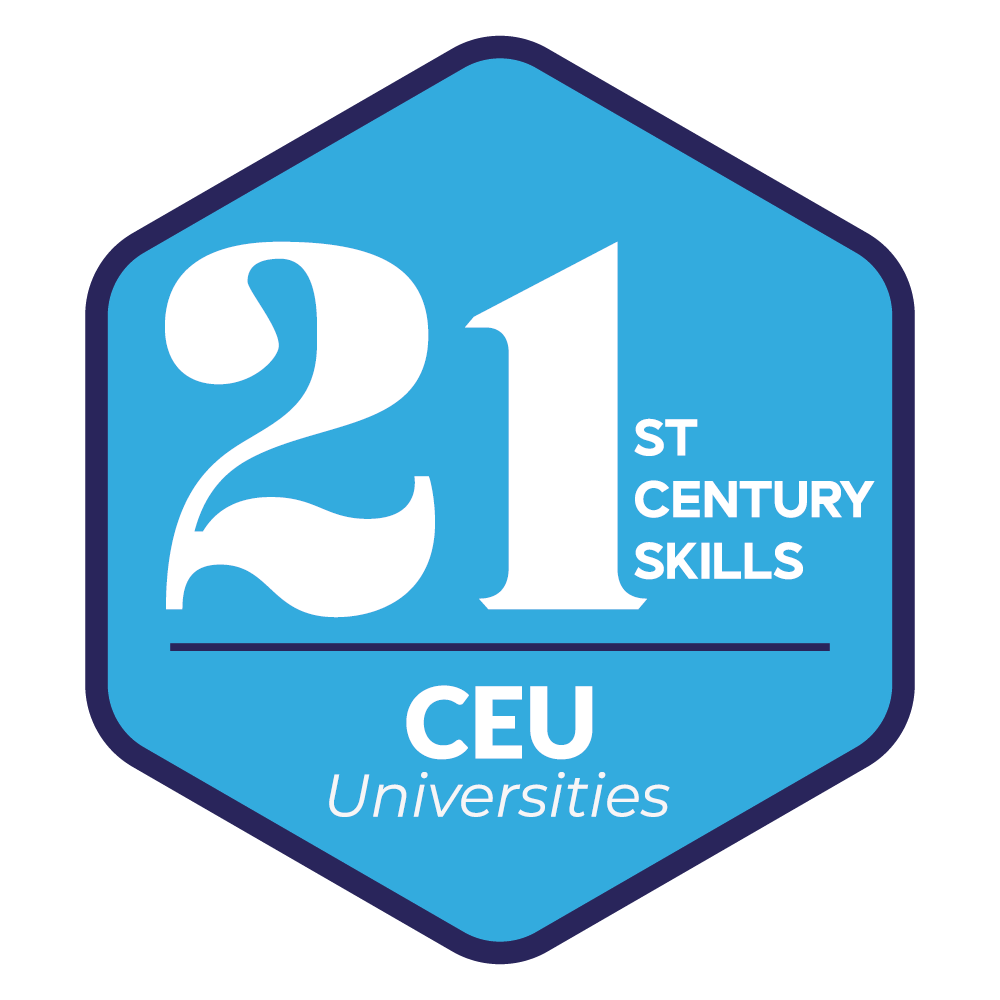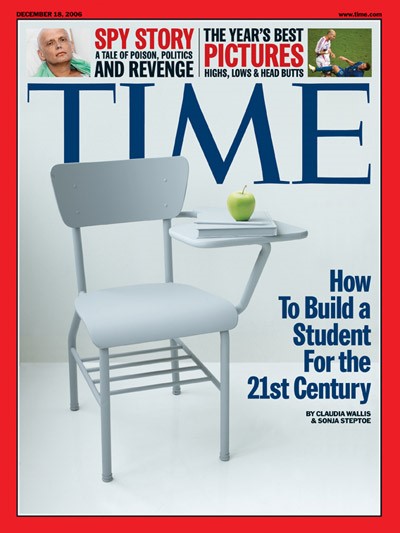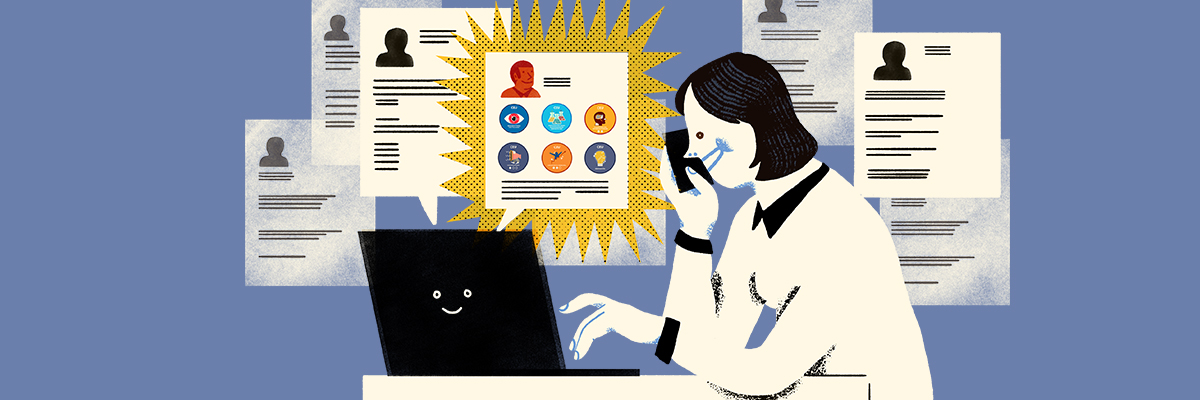
The concept of 21st century skills forms a part of the CEU Microcredential Ecosystem, but we know that not everyone will understand what it means. In this article, we want to briefly explain what these skills are and why they matter.
21st century skills is a current of thought, perhaps even a movement, which began around 20 years ago, in response to a specific need: how to ensure students were ready for the 21st century – a time of significant social change.
In 2006, TIME magazine devoted one of its famous covers to the issue, with the headline “How to build a student for the 21st Century”.

“This is a story about … whether an entire generation of kids will fail to make the grade in the global economy because they can´t think their way through abstract problems, work in teams, distinguish good information from bad, or speak a language other than (their own).”
Time 2006
Since then, the 21st century skills movement has broadened its initial focus on schools to include other levels of education. The concept has elicited a wide range of approaches, proposals and classifications, generating a rich and growing research literature. A diverse range of major international organizations have also shown an interest in the issue.
One of the most original, highly developed and widely respected initiatives in this area is that of The Partnership for 21st Century Skills, (now Batelle for kids). Although it focuses on schoolchildren, we see this an inspiring approach that can be adapted to other types of education. You can learn more about this initiative here.
Regarding which particular skills are most commonly regarded as 21st century skills are, we can start by saying that they are not really new or unfamiliar. It is probably no surprise to learn that they typically include the four 4 Cs: critical thinking, communication, collaboration and creativity. Others are skills concerning ICT literacy, global citizenship, intercultural awareness, and languages. Some figures in the field go further and say that the real challenge facing society and organizations is to ensure that everyone possesses these skills instead of just a narrow section of the population, the situation we see today.
Another great challenge facing learning in the 21st century is that of assessment. The ATC21s (Assessment and Teaching of 21st Century Skils) research project was set up to meet this challenge, with the support of Intel, Microsoft and Cisco, aiming to define 21st century skills and develop ways of asssessing them. However, we do not think that this project has achieved conclusive results.
From our point of view, the real value of the 21st skills movement lies not so much in establishing what these skills are, but in the very fact of raising awareness of the need for them and provoking debate about the nature of the 21st century’s globalized society.
If you would like to know more about this debate and read a systematic and critical discussion of it, then try this discussion paper from a few years ago by Joke Voogt & Natalie Pareja Roblin of the University of Twente.
Personally, I very much agree with the authors in that not only is it important to determine what these skills are, but also when and how they should be taught or learnt. And I would add that we need to make progress on the pending issue of how to assess them. They certainly represent a challenge for all kinds of educational and social organizations: it may be that the complexity of this question and the unresolved issues are the obstacles which are preventing those in traditional educational systems from incorporating them into their activities.
As is hardly surprising for those familiar with the social sciences, the movement has its sceptics. There are those who think that these skills are not new, that they represent a threat to traditional courses, that they devalue to the role of the educator, that they are a kind of dumbing down, that they are too difficult to measure, etc. These respectable criticisms must serve us as motivation to maintain high standards and rigour in all our work on 21st century skills, but we must be vigilant to ensure that the expression of such views is not merely a sign of resistance to change.
At CEU, we have been certifying undergraduate competencies since 2015, and in this process our own 21st century skills model has emerged.
We began by certifying soft skills and since then have been gradually incorporating other competencies into the process. We have come to realize that the skills and competencies we were certifying could be classified as 21st century skills.
Therefore, for us 21st century skills include: soft skills proper (self-knowledge, personal growth, communication, teamwork, leadership, innovation, entrepreneurship, critical thinking and creativity), research skills, instrumental skills (languages, ICT literacy and information management), internationalization, social skills for the workplace, and ethical commitment.
This model has been suggested by our International Advisory Board, it has been validated by our Internal Quality Assurance System, and it forms an integral part of the CEU Microcredential Ecosystem It is subject to a process of continuous review and improvement, so that it can respond and adapt to labour market changes and society’s shifting needs in the 21st century.


